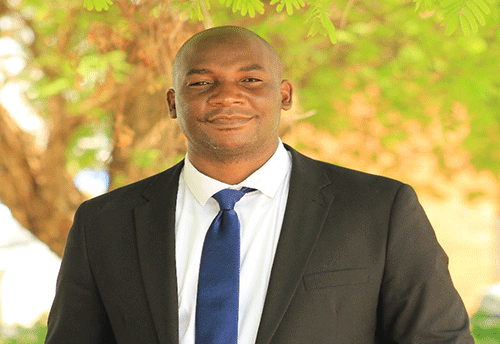Kennedy Mabuku
Education in the Namibian Police Force has been long debated since independence. Historically, entry-level positions in NamPol required no educational background, but basic policing experience. I recall being a young boy in the early 90s when announcements were made on radio for those willing to join the police to report to the nearest police stations. In contrast, the current entry-level requirements include recognised high school-leaving certificates, while tertiary education is an added advantage.
Such undertakings have sparked a nationwide conversation about raising education requirements for police officers, whether relevant or not. Even though police professionals may not previously have needed an advanced academic qualification, a shift is happening. Today, there is evidence to suggest that policing practice appreciates leaders equipped with 21st century skills; knowledge and practices that transcend the national borders to adopt practices of international standards.
The current leadership calls for the accreditation of the police’s basic certificate is evidence of a demand for well-educated personnel in NamPol. The anticipated NamPol training reform results from mounting evidence that an educated police force can have numerous positive effects. Perhaps, this stems from policing research that suggests an affirmative connection between education and effective service delivery at all levels of law-enforcement.
There are myriad security and policing issues that include gender-based violence, high-profile crimes, surfacing technologies, changing laws, community/police relations, structural changes, a new appreciation of cultural traditions and a growing mental health crisis. However, it is undeniable that the issues require a higher level of education as well as extensive ongoing training in specific disciplines for both NamPol leaders and operatives to acquire the necessary skills and knowledge to effectively deal with them. This fact has motivated a paradigm shift, where many police officers are obtaining tertiary qualifications.
Notably, the top brass, Inspector General and his deputy, possess advanced academic qualifications. This perhaps justify the collaboration with the University of Rwanda through the Musanze Police College where officers are trained each year, especially those who occupy strategic positions to help enhance their leadership skills and create the body of knowledge for the betterment of NamPol.
In addition to the above, some NamPol leaders pursued and graduated with a Diploma in Strategic Management and Leadership at the Southern African Regional Police Chiefs’ Co-operation Organisation (SARPCCO) Centre of Excellence in Harare, Zimbabwe. The Diploma in Strategic Management and Leadership is a tailor-made programme that aims to develop strategic planning knowledge among senior police officers within SARPCCO.
It is plausible that the baby-boomer generation in NamPol are retired or in the process of retiring, and the police profession is faced with a new slew of policing challenges. Therefore, leaders with knowledge of various challenges are in great demand in the policing landscape and elsewhere within the security fields.
While in the prime year of my policing career, I vividly observed that effective leadership training programmes afforded police officers the prerequisite for not only career advancement and police reforms, but also for driving policy initiatives. For instance, several policies recently have been initiated and drafted by NamPol members, and this is contrary to previous practices where even a police customer charter would require the services of an external consultant. In the process, the organisation would be charged a massive sum of money for the service. With educated police leaders within the system, such funds may be utilised on contemporary policing issues to improve service delivery since their role in crafting policies and reform initiatives becomes prevalent. This accords with Boss (2019), who noted that police leaders with tertiary qualifications are proficient, effective problem-solvers, creative, innovative and exhibit open-mindedness (p. 56).
I would equally argue that cultivating unshakeable relationships with Namibian citizens from multicultural ethnicities attracts socially and culturally intelligent police leaders. Research shows that officers who have a college education are much more adept and are more likely to solve problems, think creatively, and exhibit open-mindedness effectively (Shohel, 2020). The above implies that having field police experience and tertiary education positions those in leadership for success to desirable outcomes in policing efforts.
On the other hand, the introduced new technologies in the law-enforcement field dictate that the police should be well-trained and well-versed on how to use these new tools effectively. Furthermore, educated police leaderships are more likely to be concerned about the welfare of their subordinates, hence efficient collaboration. These leadership consortiums are sustained by the prolonged, acquired educational attributes on how well police organisations may achieve their mandates through motivated members.
While I acknowledge the role of education in the policing terrain, I must conclude that the impact of education in the policing environment will largely depend on the individual’s willingness to contribute to the organisation. Where there is a diminished desire to contribute, knowledge and skills gained through education become less useful.
The article is written personally, but not necessarily in the capacity of the Namibian Police Force.
*Kennedy Mabuku holds a Master’s in Policing Practices [SBS], amongst other qualifications.



